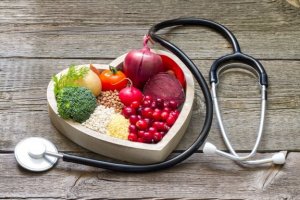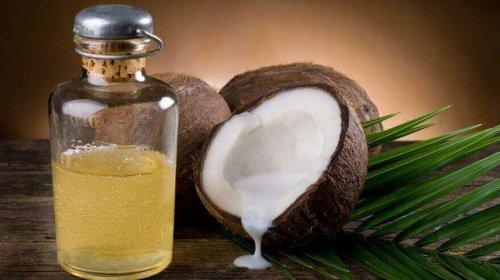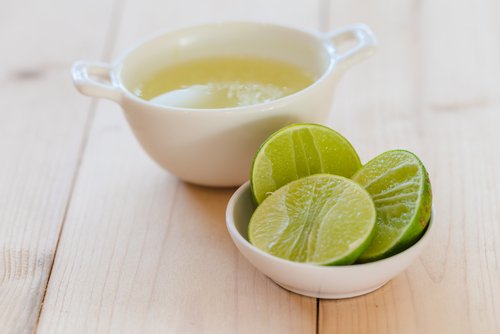Five Homemade Recipes for Controlling High Cholesterol

Cholesterol is a type of fat that’s found in the blood. Although the body produces all the cholesterol it needs, it’s also possible to obtain it through food. Some factors such as genetics, age and activity levels can affect the risk of developing high cholesterol, which is harmful to your health. That’s why we’d like to provide you with some homemade recipes for controlling high cholesterol.
Certainly, good cholesterol levels are essential to live a healthy life. It’s a comprehensive part of the body’s process to use fats in your diet, which are vital for producing cells, bile salts, hormones, and vitamin D. However, high cholesterol is one of the main risk factors for heart disease. If you have high cholesterol, your doctor may recommend certain medications or changes in your lifestyle.
Also, you should know that almost all fruits and vegetables help reduce levels of bad cholesterol (LDL) because they contain soluble fiber, which absorbs the cholesterol in your diet.
That said, let’s take a look at some great recipes to help you control your cholesterol levels.
5 Homemade Recipes for Controlling High Cholesterol

If you want to use a remedy for high cholesterol, you should know that it’s possible thanks to some homemade recipes to control it. Take note, because they can certainly help you achieve your goal to lead a healthier life.
Read this article, too: Everything You Should Know About Cholesterol
1. Coconut Oil
First, take a look at coconut oil, which is as an essential ingredient for controlling high cholesterol.
Coconut oil is known to increase levels of good cholesterol (HDL) in the blood. This, in turn, helps to reduce the levels of bad cholesterol (LDL) and also protects you from heart disease to help you keep your weight under control.
- If you want to take advantage of its incredible benefits, you just need to add coconut oil to your favorite dishes and salads in moderate amounts.
- You can even replace your cooking oil for coconut oil. Alternatively, you can consume a tablespoon of coconut oil every morning.
2. Grapefruit Juice
Second, it’s recommended to drink freshly squeezed grapefruit juice 1 to 2 times a day, preferably after each meal. Keep in mind that grapefruit juice is a rich source of proteins and nutrients that have amazing benefits for your health.
Also, grapefruit provides your body with vitamin C, fiber and minerals such as magnesium and potassium.The strong antioxidant potential of grapefruits, along with its excellent nutrient composition, make it an ideal choice for controlling high cholesterol.
“The best and most efficient pharmacy is within your own body.”
-Robert C. Peale-
3. Apple Cider Vinegar
Next, there’s apple cider vinegar. You should know that the apple cider vinegar contains acetic acid and pectin. Thus, while the acetic acid helps you shed that unwanted body weight that’s associated with high cholesterol, bad cholesterol (LDL) sticks to the pectin of the apple cider vinegar and then your body eliminates it.
Ingredients
- 1 tablespoon of apple cider vinegar (15 ml)
- 1 glass of water (200 ml)
- Honey (to taste)
Directions
- Add a tablespoon of apple cider vinegar into a glass of warm water and mix well.
- If you’d like, you can add a little honey to the mixture.
- Mix it well and consume.
- It’s recommended to drink this solution once a day or every other day to take advantage of its excellent benefits.
4. Lemon Juice

Lemon juice is a rich source of vitamin C and antioxidants. This makes it an effective remedy to reduce levels of bad cholesterol (LDL) and promote weight loss.
Ingredients
- The juice of ½ lemon
- 1 glass of water (200 ml)
- Honey (to taste)
Directions
- Add the juice of half a lemon in a glass of warm water.
- Mix well and add a little honey.
- It’s recommended to try to consume the juice immediately.
- Ideally, drink a glass once a day, preferably every morning on an empty stomach.
Check out this article, too: 5 Wonderful Benefits of Lemon Juice for Our Body
5. Green Tea
Finally, you should know that green tea is a rich source of polyphenols. These compounds provide immense benefits for the health of the human body. In fact, green tea has the highest concentration of polyphenols, which are not only associated with the reduction of cholesterol, but also countless other health benefits.
Ingredients
- 1 tablespoon of green tea (15 g)
- 1 cup of water (250 ml)
- Honey (to taste)
Directions
- Heat up the water.
- Once it boils, lower the heat and add the green tea.
- Let it infuse over low heat for 5 minutes and then remove.
- When the tea has cooled down a bit, you can add a bit of honey.
- It’s best to drink it while it’s still warm.
Finally, remember that your daily diet plays an important role in achieving and maintaining your health goals. You can manage to control your high cholesterol effectively with good nutrition, regular exercise and leading an overall healthy lifestyle.
With these healthy habits and thanks to this list of homemade recipes, you’ll be able to control your high cholesterol!
All cited sources were thoroughly reviewed by our team to ensure their quality, reliability, currency, and validity. The bibliography of this article was considered reliable and of academic or scientific accuracy.
- Decision Laboratory – Cardiff University. (2012). High cholesterol. https://doi.org/10.1016/j.cemconcomp.2013.09.014
- Eyres, L., Eyres, M. F., Chisholm, A., & Brown, R. C. (2016). Coconut oil consumption and cardiovascular risk factors in humans. Nutrition Reviews. https://doi.org/10.1093/nutrit/nuw002
- DebMandal, M., & Mandal, S. (2011). Coconut (Cocos nucifera L.: Arecaceae): In health promotion and disease prevention. Asian Pacific Journal of Tropical Medicine. https://doi.org/10.1016/S1995-7645(11)60078-3
- Lee, J. W., Morris, J. K., & Wald, N. J. (2016). Grapefruit Juice and Statins. American Journal of Medicine. https://doi.org/10.1016/j.amjmed.2015.07.036
- Dow, C. A., Going, S. B., Chow, H. H. S., Patil, B. S., & Thomson, C. A. (2012). The effects of daily consumption of grapefruit on body weight, lipids, and blood pressure in healthy, overweight adults. Metabolism: Clinical and Experimental. https://doi.org/10.1016/j.metabol.2011.12.004
- Beheshti, Z., Huak Chan, Y., Sharif Nia, H., Hajihosseini, F., Nazari, R., Shaabani, M., & Salehi Omran, M. T. (2012). Influence of apple cider vinegar on blood lipids. Life Science Journal.
- Cabrera, C., Artacho, R., & Giménez, R. (2006). Beneficial Effects of Green Tea—A Review. Journal of the American College of Nutrition. https://doi.org/10.1080/07315724.2006.10719518
This text is provided for informational purposes only and does not replace consultation with a professional. If in doubt, consult your specialist.








